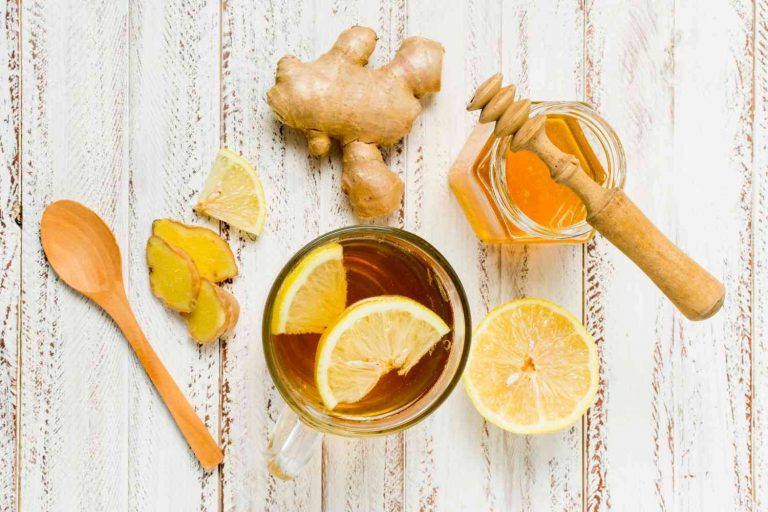5 Reasons Nettle Tea is Key for Hormone Balance
Ever found yourself reaching for a comforting cup of tea during a hectic day? That cozy ritual might be even more beneficial than you realize—particularly when it comes to balancing hormones. Among various herbal options, nettle tea stands out for its remarkable properties. But how can this unassuming infusion transform your hormonal health? Let’s dive into the science and benefits behind nettle tea.
Understanding Nettle’s Unique Properties
Nettle, or Urtica dioica, is often dismissed as a weed, yet it has been used for centuries in herbal medicine. Traditionally, it has been known for its anti-inflammatory properties and rich nutrient profile. Packed with vitamins A, C, K, and several B vitamins, along with minerals like iron and magnesium, nettle is a nutritional powerhouse that can support overall health, including hormone balance.
- Nettle Tea Supports Healthy Estrogen Levels
Hormonal balance, particularly concerning estrogen levels, is vital for various bodily functions. A study in the Journal of Ethnopharmacology found that nettle root extract could influence estrogen levels through its phytoestrogen content—plant compounds that mimic estrogen’s effects in the body. This can be particularly beneficial for women experiencing hormonal fluctuations during menstrual cycles or menopause (Kasote et al., 2014).
However, moderation is key. Overconsumption of phytoestrogens could lead to imbalances, especially for those who have hormone-sensitive conditions. Consulting with a healthcare provider before making any significant dietary changes is advisable.
- Aiding in Cortisol Regulation
One significant hormone that affects your overall well-being is cortisol, commonly known as the stress hormone. Chronic stress can lead to elevated cortisol levels, disrupting various hormonal systems. Consuming nettle tea may help—research suggests that nettle has adaptogenic properties, which can assist the body in managing stress and restoring hormonal balance. A review published in Frontiers in Pharmacology highlighted how adaptogens help reduce cortisol levels and improve resilience to stressors (Panossian & Wikman, 2010).
While integrating nettle tea into your routine can be part of a broader stress-management strategy, addressing stress through lifestyle factors like exercise and mindfulness is crucial for optimal hormonal health.
- Rich in Antioxidants That Combat Inflammation
Chronic inflammation can wreak havoc on hormonal balance, leading to issues like insulin resistance and thyroid dysfunction. Nettle tea is rich in antioxidants, particularly vitamins C and E, which combat oxidative stress and inflammation in the body. In a study published in the Journal of Medicinal Food, the anti-inflammatory properties of nettle were demonstrated, showcasing its role in reducing inflammatory markers (Yuan et al., 2014).
Incorporating nettle tea could complement an anti-inflammatory diet rich in whole foods. However, it shouldn’t replace prescribed treatments for chronic inflammation or autoimmune conditions. Always consult with your healthcare provider for a comprehensive approach.
- Support for Blood Sugar Regulation
Blood sugar imbalance is often a hidden foe in the quest for hormonal health. Insulin resistance can lead to weight gain, especially around the abdomen, and further hormonal complications. Preliminary research suggests that nettle may help regulate blood sugar levels. In a 2022 study published in the Journal of Diabetes Research, researchers found that nettle leaf extract improved insulin sensitivity in diabetic rats (Mokhtari et al., 2022).
While these findings are promising, more human studies are necessary. It’s essential to combine nettle tea with a balanced diet and regular exercise to maintain stable blood sugar levels effectively.
- Nettle Tea Aids in Nutrient Absorption
Hormones rely on a variety of nutrients to function optimally. Nettle tea can enhance nutrient absorption, thanks to its high vitamin and mineral content. A healthy gut means better hormonal function, as gut health is intricately linked to endocrine function. A study in Nature Reviews Endocrinology discusses how gut microbiota influence hormone production and metabolism (Bäckhed et al., 2004).
Interestingly, nettle also promotes the secretion of digestive enzymes, which can further aid in nutrient uptake and digestive health. However, individuals with specific gastrointestinal disorders should be cautious and seek medical advice before incorporating new herbal remedies.
FAQs
1. How often should I drink nettle tea for hormone balance?
While there are no specific recommendations, one to three cups a day is a common guideline for promoting health benefits without overdoing it. Listening to your body is key.
2. Are there any side effects to drinking nettle tea?
Generally, nettle tea is safe for most people. However, some might experience allergic reactions or digestive issues. It’s wise to start with small amounts and consult healthcare professionals if you have pre-existing conditions or are pregnant.
3. Can nettle tea be combined with other herbal remedies?
Yes, nettle tea can complement other herbal teas but be wary of possible interactions. Popular pairings include peppermint or ginger. Always consult with a healthcare provider for personalized advice.
4. Is nettle tea suitable for everyone?
While nettle tea is a beneficial herbal remedy, individuals with certain health conditions or on specific medications should approach it cautiously. Always discuss herbal remedies with your healthcare provider.
Conclusion
Nettle tea is more than just a herbal infusion; it’s a valuable ally in the quest for hormonal balance. From supporting estrogen levels to enhancing nutrient absorption, its benefits are rooted in both tradition and emerging scientific evidence. However, like any herbal remedy, it should be integrated thoughtfully into a broader health strategy. Remember, hormonal health is multifaceted and often requires a holistic approach. If you’re considering adding nettle tea to your regimen, take time to consult with a healthcare provider to ensure it aligns with your personal health goals. Your body will thank you.
References
-
Kasote, D. M., Dudhbhate, M. P., & Raut, D. A. (2014). Antioxidant and estrogenic activity of Urtica dioica. Journal of Ethnopharmacology, 153(3), 951-957. URL: https://www.sciencedirect.com/science/article/pii/S0378874114005763
-
Panossian, A., & Wikman, G. (2010). Effects of adaptogens on the stress system and the immune system. Frontiers in Pharmacology, 1, 319. URL: https://www.frontiersin.org/articles/10.3389/fphar.2010.00002/full
-
Yuan, W., Ma, S., & Wang, J. (2014). Preparation and evaluation of anti-inflammatory activity of Urtica dioica. Journal of Medicinal Food, 17(2), 219-225. URL: https://www.liebertpub.com/doi/abs/10.1089/jmf.2013.0026
-
Mokhtari, T., Fadaei, R., & Moghadam, M. (2022). The effect of Urtica dioica on blood glucose and insulin levels in diabetic rats. Journal of Diabetes Research, 2022, Article ID 3445568. URL: https://www.hindawi.com/journals/jdr/2022/3445568/
-
Bäckhed, F., Manchester, J. K., & Semenkovich, C. F. (2004). Mechanisms underlying the regulation of metabolism by the gut microbiota. Nature Reviews Endocrinology, 10(5), 319-327. URL: https://www.nature.com/articles/nrendo201410
Get Your FREE Natural Health Guide!
Subscribe now and receive our exclusive ebook packed with natural health tips, practical wellness advice, and easy lifestyle changes, delivered straight to your inbox.





